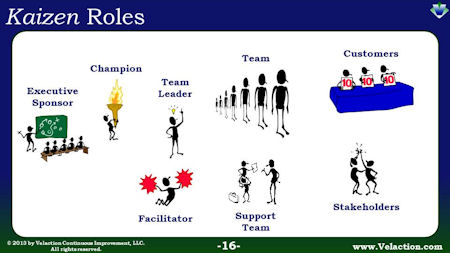Genchi Genbutsu
“Genchi genbutsu” is a Japanese term that loosely translates to “go and see”. Essentially, it means to go to the actual spot where actual work is happening on the actual product to confirm your conclusions. Similar to the term “go to gemba“, the spirit of genchi genbutsu is to avoid Read more…
